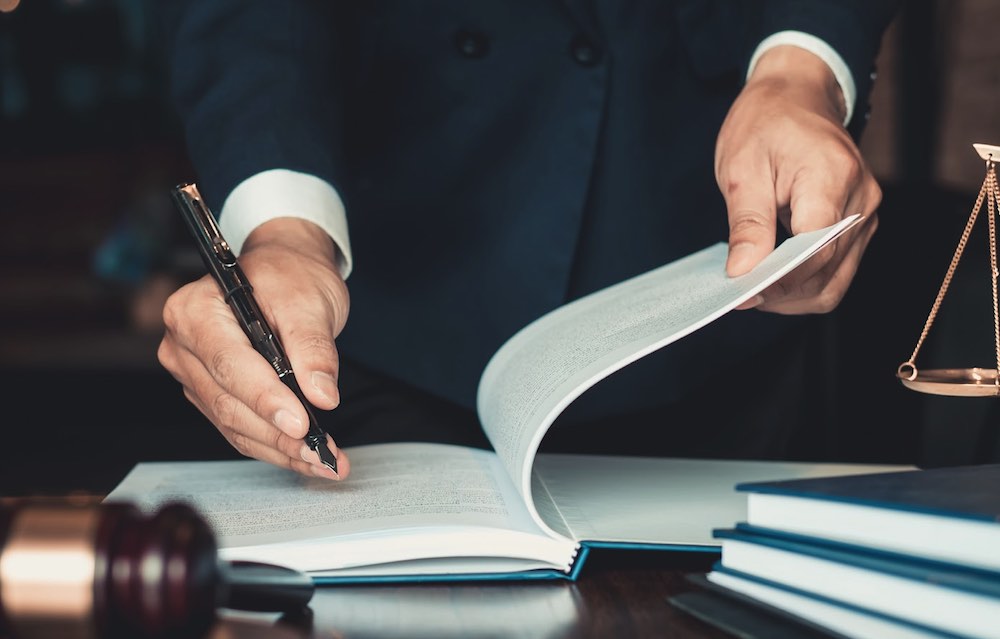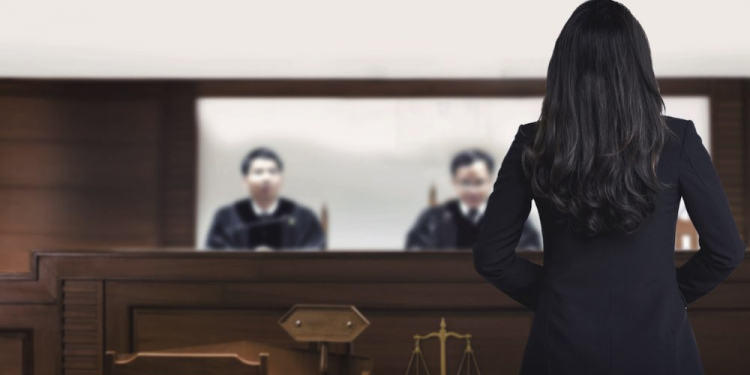If you find yourself in a middle of a legal dispute, sifting through documents can get a little tricky. Lawyers, legal proceedings, and legal documents speak a different language. This technical language is called legalese (legal English), and yes, it can be overwhelming.
Nonetheless, brushing up on some basic legal terminologies can actually be beneficial. For starters, it can help you communicate with your lawyer and develop better strategies to win the case. You can also quickly identify weak points and potential threats directed at you. This gives you opportunities to come up with stronger arguments.
In this article, we’ve summed up some commonly used words to give you greater confidence and help you win a claim.
- Claim
A claim is a document filed by the complainant or aggrieved party’s lawyer that details what the accused did wrong, the damages caused, and how the offense transpired. The claim also specifies what form of relief the aggrieved party seeks from the accused, such as monetary compensation and a public apology.
Regardless of location, claims use standardized terms such as negligence and medical malpractice to keep legal proceedings organized and all parties involved on the same page.
One thing to note is that a claim is different from a case in that it does not immediately proceed to a ligation. The complainant must first file a claim. If the problem cannot be resolved amicably, it will be escalated to a legal case and a court hearing will take place.

- Statute of Limitations
The statute of limitations refers to the maximum amount of time a dispute can be taken to court by the complainant. The length of time the statute allows for the complainant to file a claim depends on the nature of the offense and which court has jurisdiction.
One example is the difference in the statute of limitations for offenses such as medical malpractice versus manslaughter. In general, one has two years to sue a medical facility for medical malpractice. In contrast, the typical statute of limitations for manslaughter is six years.
- Plaintiff
This term refers to the complainant or the aggrieved party who files the complaint or claim against another party in court. An example can be a husband filing for a divorce.
- Defendant
This term refers to the party being sued for causing aggravation to the complainant or plaintiff. Following the example above, the defendant would be the wife.
- Burden of Proof
The burden of proof refers to the plaintiff’s legal obligation to present factual or substantial evidence in court, either by narration or documentation.
For instance, Karla is suing Denver for car accident damages because he was texting while driving. Karla then must produce evidence to prove that this incident occurred.
- Jurisdiction
Jurisdiction is the litigating court’s power over the defendant and the case.
In the United States, where two distinct and separate legal systems exist, jurisdiction over a case is usually determined by the nature of the offense. Day-to-day offenses and criminal proceedings are typically heard in state courts. Meanwhile, federal courts have authority over matters involving federal questions, treaties and diplomats, admiralty, U.S. government cases, and diversity.
There are three factors to consider for a court to gain jurisdiction over a claim or the defendant.
- Personal Jurisdiction: a business or individual who is a citizen of a particular state will be under the jurisdiction of their state court regardless of where the offense occurred.
- Tag jurisdiction: Tag jurisdiction happens when the defendant is sued in a state they don’t live or do business in but are there no matter how brief their stay was.
- Subject Matter Jurisdiction: This requires the plaintiff to choose between state and federal courts if the location of the court is necessary for personal jurisdiction Usually, state courts hold jurisdiction over most lawsuits. However, there are instances wherein a case will need to involve the federal court. Federal rights, civil rights, patent infringement rights cases are some examples.
- Venue: The plaintiff may file a claim in any court of his choice. Procedural rules that favor the plaintiff, the convenience of the venue, and knowing which judges would be more open to their position are all variables that influence which court is selected.
Once a court is given jurisdiction based on these considerations, it is legally empowered to make decisions that will affect the outcome of a complaint concerning the issue at hand.
Volkswagen’s ‘Dieselgate’ incident is a great example of jurisdiction. This controversy began in 2015 when the United States Environmental Protection Agency (EPA) discovered the Volkswagen company breaching the Clean Air Act. In this instance, it can be seen how the aforementioned automaker was tried in both federal and state courts.
Volkswagen attempted to pursue their case in other states, including Ohio, Florida, San Francisco, and Utah, to avoid the claims made against them in federal court. However, their efforts were futile since the state courts that heard their appeal threw the case out because these several states stood in solidarity under the Clean Air Act.
- Summons
Also known as a ‘Citation’, a summon is a form from the plaintiff informing the defendant that he is being sued or that he must appear in court. This document is frequently sent by mail or physically delivered by a court officer. It contains information on which court will hear the complaint or case, when the defendant must appear in court, and the specific number of days allowed for the defendant to respond to the claim.
- Service Of Process
This process is also known as ‘being served’ or ‘Serving the Complaint.’ This process is basically a confirmation of the defendant’s identity and a way to serve the summons.
Usually, the defendant will receive the complaint and the summons from the plaintiff through the mail personally delivered by an officer of the court. In the event the defendant is not personally available to receive the service, the plaintiff has two options:
- First, if the defendant is missing and nowhere to be found, the plaintiff can publish the notice of the lawsuit in a newspaper
- Second, the plaintiff will need to arrange for someone who is living with the defendant to receive the service instead
- Answer
‘Answer to the complaint’ or ‘answer’ is the general term referring to the defendant’s response to a claim. The best way to craft the document is by consulting a lawyer to effectively address point by point the allegations made against the defendant.
Typically, the defendant will respond with the following:
- Deny: to oppose the claim filed against them
- Admitted: to state their confirmation of the claim
- Insufficient knowledge to admit or deny: to express the uncertainty of their position towards a claim
- Counter Claim
A counterclaim is when a defendant files a claim against the plaintiff based on the same grounds. By filing a counterclaim, the defendant becomes the plaintiff and gains a new means of establishing their innocence because they now bear the burden of proof.
One good example is the case between LG Electronics USA, Inc. and Whirlpool Corp. Whirlpool Corp. sued LG Electronics in 2008 for three patent infringement violations. During these proceedings, LG Electronics filed counterclaims asserting their patents and requesting that the courts to prohibit LG from importing refrigerators in the US.
- Default Judgement
A decision made by a judge or court is referred to as a default of judgment. This decision arises when the court decides to settle the case by favoring the plaintiff without hearing the defendant’s side.
It is essential to note that the defendant’s absence from the court does not exempt them from complying with the court’s ruling. Thus, the defendant will still be liable to any punishment ordered by the court.
- Motion To Vacate Default Judgement
If you are a defendant who received the default judgment decision and would like to request a new trial to present your side of the story, you must file a motion with the judge to vacate the default judgment against you.
To properly file this motion, you must remember to respond quickly to avoid missing the deadline, as well as consult with your lawyer to clearly explain why you were unable to attend court. Filing this motion also requires personally appearing before the court that has jurisdiction over your case.
Conclusion
Finding yourself embroiled in a lawsuit is never easy. With this added stressor, you may feel lost or confused when speaking with your lawyer, intensifying your frustrations. If you have these emotions, avoid succumbing to them by being proactive in asking questions and conducting more research.
Doing your due diligence while dealing with this difficulty can be beneficial to you. So, if you’ve been reluctant to ask your lawyer the meaning of specific legal terminology, this list might be something you want to remember.
Author’s Bio:
Peter Roberts is a famous lawyer who addresses social inequalities and is a human rights expert. He loves to read books and keeps himself updated on social issues.






























Discussion about this post